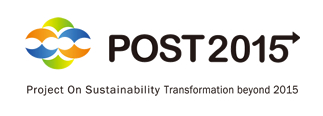An international workshop to examine governance surrounding the post-2015 development agenda brought together academics and practitioners to provide input for the ongoing inter-governmental process to determine the Sustainable Development Goals (SDGs).
 1 February 2014: A workshop to examine governance surrounding the post-2015 development agenda brought together academics and practitioners to provide input for the ongoing inter-governmental process to determine the Sustainable Development Goals (SDGs).
1 February 2014: A workshop to examine governance surrounding the post-2015 development agenda brought together academics and practitioners to provide input for the ongoing inter-governmental process to determine the Sustainable Development Goals (SDGs).
The workshop on ‘Governance “of” and “for” Sustainable Development Goals (SDGs)’ took place on 1 February 2014, in New York, US, and was sponsored by the Tokyo Institute of Technology, the Earth System Governance project, the UN University Institute of Advanced Studies (UNU-IAS), and the POST2015 project (which is funded by the Ministry of Environment, Japan).
Topics discussed included: the functions of SDGs, including targets and indicators; how governance will be included in the agenda; resources required for the implementation of the goals; the relationship between the SDGs and the High-level Political Forum on Sustainable Development (HLPF); the monitoring, evaluation, and financial mechanisms of the SDGs; and UN engagement with outside actors to fulfill the development agenda. The meeting was conducted under Chatham House rules.
In keynote presentations, academics discussed the mechanisms, functions, and design of the SDGs. One keynote highlighted the governance strategy embedded in “goal-making,” and pressed participants to consider how rhetorical goals will guide or influence the behavior of society. A second keynote presentation examined the role of the HLPF in implementing the future development goals, and the presenter suggested that this Forum take on the role of “orchestrator” of the SDGs.
Break-out discussions brought the academic and practitioner participants together in discussion of the main themes. On the functions of SDGs, group discussions highlighted the need to distinguish between aspirational or “problem-solving” goals. They also discussed: the possibility of designing sub-goals to better articulate certain issues; the need to promote an integrated, systems-oriented approach; the need for goals to lead to political mobilization, communication, and monitoring; and the creation of clusters of practitioners to implement each goal. On governance, most participants agreed that the issue should be integrated into the agenda both through a stand-alone goal and by mainstreaming it across the agenda. However, several participants cautioned that the definition of “governance” is constantly in flux, so the term must be appropriated defined in the agenda.
On the implementation of the SDGs, participants discussed the importance of informal partnerships, national plans, private capital, and specific implementation mechanisms to ensure that the goals are carried out. When considering the role of the HLPF, participants stressed that in order for the Forum to have to ability to facilitate the implementation of the SDGs, it must be given a specific enforcement role by Member States. Discussion groups also offered various means for UN engagement with stakeholders, including through partnerships, soliciting voluntary commitments, and crowd-sourcing of data. On monitoring, participants stressed that review mechanisms should not be goal-specific, but should evaluate broader, common challenges. It was stressed that NGOs, the private sector and academic institutions should be involved in the monitoring process.
The results and discussion of this workshop will be made into a report produced by the sponsors, which will identify the main ideas, proposals, and research of the participants. [IISD RS Services] [POST2015 Project] [Earth Systems Governance Project] [Tokyo Institute of Technology] [UNU-IAS]